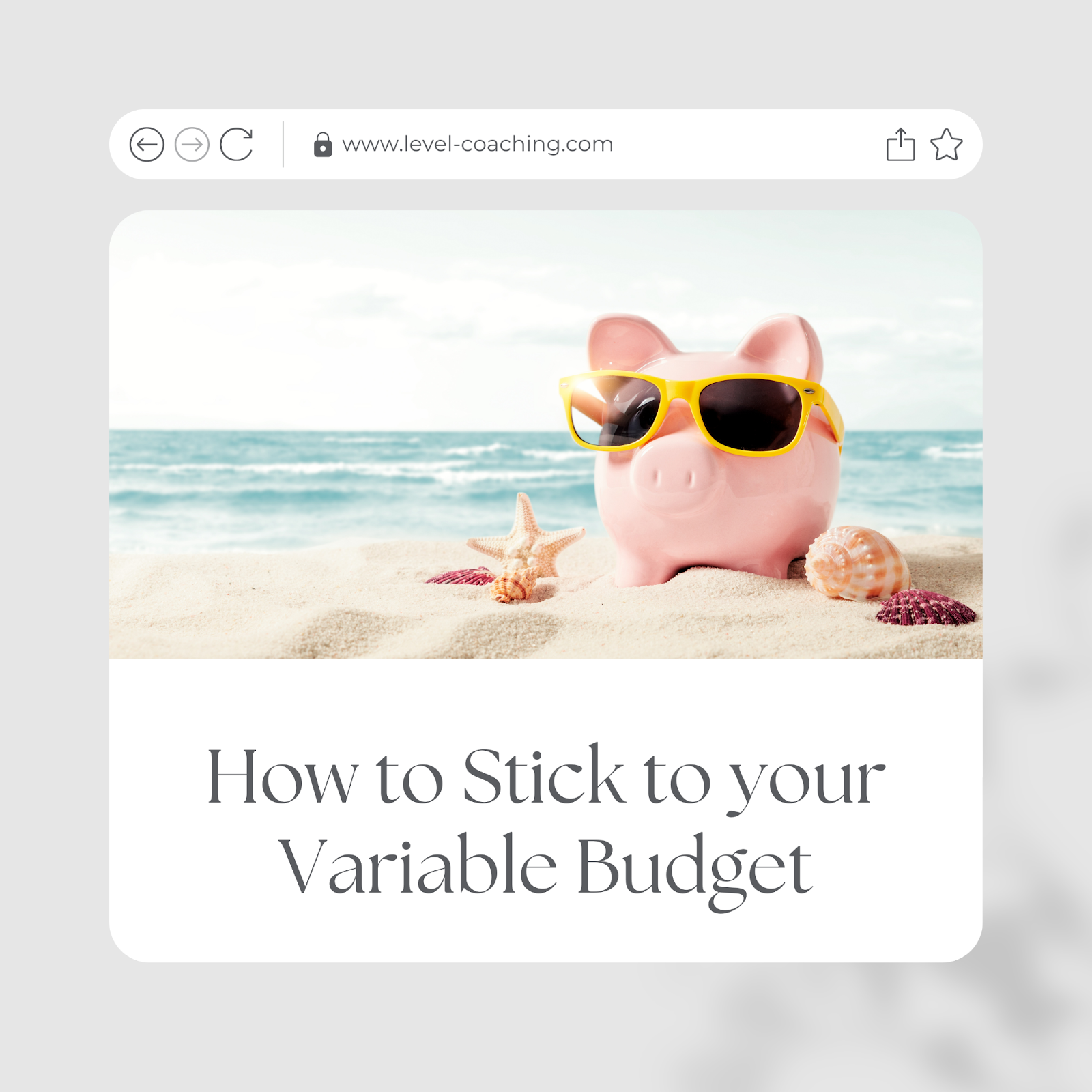
30 Apr How to Stick to Your Variable Budget: 15 Proven Strategies for Success
If you struggle with staying within your variable budget, you’re not alone. Managing variable expenses—those day-to-day costs like dining out, groceries, entertainment, and spontaneous online purchases—can feel challenging. However, mastering these expenses is crucial to achieving financial stability and long-term success. Here, we’ll break down 15 practical, proven strategies to help you stick to your variable budget and gain control of your finances.
Understanding Variable Expenses
Variable expenses are the costs in your budget that fluctuate each month, unlike fixed expenses such as rent or loan payments. They typically include groceries, entertainment, dining out, clothing, transportation, and miscellaneous purchases. Understanding your variable expenses is crucial because these are the areas where you have flexibility and control.
Calculating Your Variable Budget
- Start with your monthly take-home pay.
- Subtract fixed expenses (rent, utilities, insurance, etc.).
- Subtract your savings goals.
What remains is your variable expense budget—the money available for your discretionary monthly spending.
Why Are Variable Budgets So Hard to Stick To?
Sticking to a variable budget is challenging due to the countless small decisions required each day. Expenses such as a morning latte, lunches out, or impulse online shopping can quickly accumulate without notice. The ease of digital payments further exacerbates the problem because spending feels less tangible, reducing the psychological impact compared to handing over cash. Life’s unpredictability also complicates matters, making consistent adherence difficult.
The good news is that by recognizing why variable budgets fail, you can adopt strategies to manage these expenses effectively.
15 Proven Strategies for Sticking to Your Variable Budget
1. Track Every Expense
Use apps or spreadsheets to record every purchase immediately. Tracking expenses boosts awareness and typically reduces spending by 10-15%.
2. Categorize Your Spending
Divide your variable budget into clear categories (groceries, dining, entertainment). Granular categorization helps identify patterns and areas for reduction.
3. Weekly Reviews
Conduct a weekly financial review. Regular check-ins help you adjust quickly if overspending occurs, rather than facing surprises at month-end.
4. Use Separate Spending Accounts
Set up a dedicated checking account for variable expenses. Transfer your monthly allowance into it, making overspending harder because once it’s gone, it’s gone.
5. Set Realistic Budgets
Avoid overly restrictive budgets. Instead, base your spending limits on actual tracked expenses from previous months, adjusting as necessary.
6. Prioritize Needs Over Wants
Clearly differentiate essential expenses (like groceries) from discretionary ones (like dining out). Fund essentials first to ensure your basics are always covered.
7. Reduce Expenses with Small Changes
Implement practical changes like meal prepping or finding affordable entertainment. Small, consistent adjustments yield significant savings over time.
8. Reward Yourself
Motivate yourself with rewards when you stay on budget. Choose meaningful incentives proportional to your budgeting milestones to maintain motivation.
9. Cash Envelope System
For habitual overspending categories, switch to cash envelopes. Using physical cash strengthens your awareness and curtails spending habits effectively.
10. Include Buffer Categories
Allocate around 5% of your variable budget to unexpected expenses, preventing unforeseen costs from derailing your entire budget.
11. Practice Delayed Gratification
Enforce a 24-hour waiting period before making non-essential purchases. This reduces impulse spending and emotional buying.
12. Find an Accountability Partner
Partnering with a friend, family member, or financial coach enhances your accountability. Regular check-ins make sticking to your budget more achievable and engaging.
13. Automate Regular Expenses
Automate predictable variable expenses, like subscriptions, to reduce decision fatigue and ensure these costs are consistently accounted for.
14. Adjust Your Budget Seasonally
Adapt your budget to seasonal variations, such as increased travel expenses in summer or higher utilities in winter, ensuring your plan remains realistic year-round.
15. Celebrate Progress, Not Perfection
Embrace budgeting as a learning process. View overspending as feedback rather than failure, and celebrate improvements to stay motivated and focused.
How Financial Coaching Can Help
While these strategies significantly boost your ability to manage variable expenses, personalized support can further enhance your success. Just as a personal trainer guides you in fitness, a financial coach provides tailored budgeting plans, ongoing support, and accountability without judgment.
Financial coaches help you build sustainable habits and navigate the psychological barriers to financial wellness, increasing your chances of lasting success with your variable budget.
Conclusion
Managing variable expenses doesn’t need to feel overwhelming. By implementing these practical strategies, you can significantly improve your budgeting skills and achieve financial stability. Whether through meticulous tracking, strategic adjustments, or professional financial coaching, the journey to financial empowerment is entirely within your reach. Take control today and transform your financial future.
Written by Nichole Miller,
April 2025

